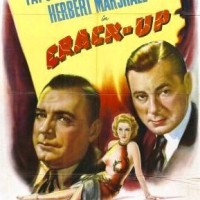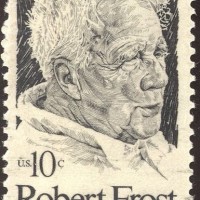In a post from early February I brought up our collective anxiety over the rules of taste and promised to explore the issue in greater detail, but then got sidetracked with other topics. Yesterday morning (while looking for ways to avoid a big pile of end-of-semester grading), I wandered across a 1946 film noir called Crack-up showing on TCM. The story focuses on an art critic and “anti-snobbery … [Read more...]
Silence or Violence
At the college where I teach I’ve recently had some interesting experiences with the concept of nonviolent communication. The term was coined by psychologist Marshall Rosenberg some forty years ago, the result of his experience as a civil rights activist and his continuing interest in peace work. According to the Center for Nonviolent Communication website, Nonviolent Communication (NVC) is based … [Read more...]
The Talking Cure, Part V (effective facilitation)
In my observation, the best audience-centered interpretive experiences are rooted in effective facilitation. But here’s the key—the facilitator is an instrument dedicated to creating a hospitable learning environment, not an ego looking to be fulfilled. The facilitator does not make the meaning and give it to an audience . The facilitator establishes the environment and the tools for artists and … [Read more...]
The Talking Cure, Part IV (powerful questioning and attentive listening)
In the first part of Chapter 5 of my new book, I look at two key aspects of productive talk: powerful questioning and effective listening. In the second part of the chapter I survey various techniques for questioning and listening, argumentation, and debate as well as the role that personal responses—ideas, feelings, emotions, life stories—can play in the meaning making process. I end the chapter … [Read more...]
The Talking Cure, Part III (productive talk)
I talk in order to understand; I teach in order to learn. ~Robert Frost As I wrote in my last post, the Arts Talk model envisions an environment where a variety of forms of talk, from dialogue to discussion to debate, are not only possible but also are common. While dialogue as a mechanism for achieving consensus and greater understanding is a key goal for engendering engagement around the … [Read more...]
The Talking Cure, Part II (discussion and debate)
Conversation is a way of cooperating with other people in a public way. It is a reciprocal undertaking. In participating in a spontaneous social conversation, for instance, we engage in a culturally determined and understood set of rules (you talk and I listen, then I talk and you listen). The word itself refers to a structure of turn-taking between speaker and listener. The Latin roots—conversari … [Read more...]
The Talking Cure, Part One (networking)
Talk defines our culture and our daily lives (an average person talks from six to twelve hours per day). In the next several posts I’m going to explore the nature and function of talking and ask some key questions about the role of productive talk in creating a more vibrant arts ecology. As I argue in Audience Engagement and the Role of Arts Talk in the Digital Era, productive talk (whether it is … [Read more...]
The H Word
“Hospitality” is a new buzz word in the arts right now—a by-product of a surrounding participatory ethos in leisure activity and the attendant urge to open our doors in new, more friendly and generous ways. I’m all for it. I love Mixed Blood Theater in Minneapolis’ adaptation of the concept of “radical hospitality,” a term with roots in both spiritual and feminist practices. At Mixed Blood, … [Read more...]
Odious Comparisons: Arts and Sports
Yes, I know. Apples are apples and the arts aren’t sports. I’ve been writing and giving talks about what the arts and sports have in common and what our industry can learn from the sports industry for over a decade now. I still receive a fair amount of resistance to the comparison from my fellow arts workers (sports fans are primarily interested in competition, not aesthetics; the sports … [Read more...]
Whose Audience?
Or, should I ask: who’s the audience? I launched this blog in late January, but up to now I haven’t really discussed the considerable complication associated with use of this word. I’d like to begin to do that with this post. In English-speaking contexts, the term audience (from the Latin auditorium, or hearing place) is generally interchangeable with spectator (from the Latin specere, to … [Read more...]










